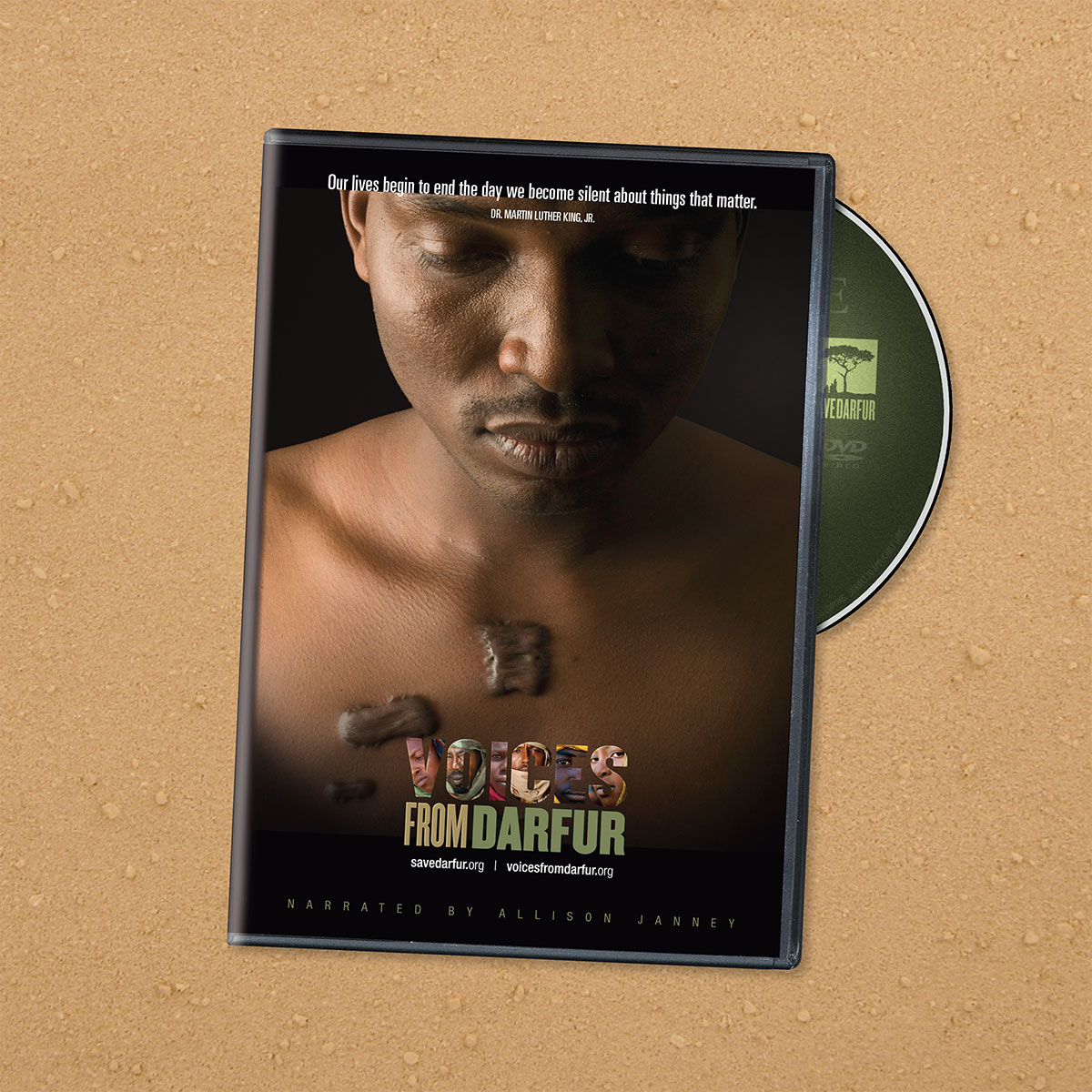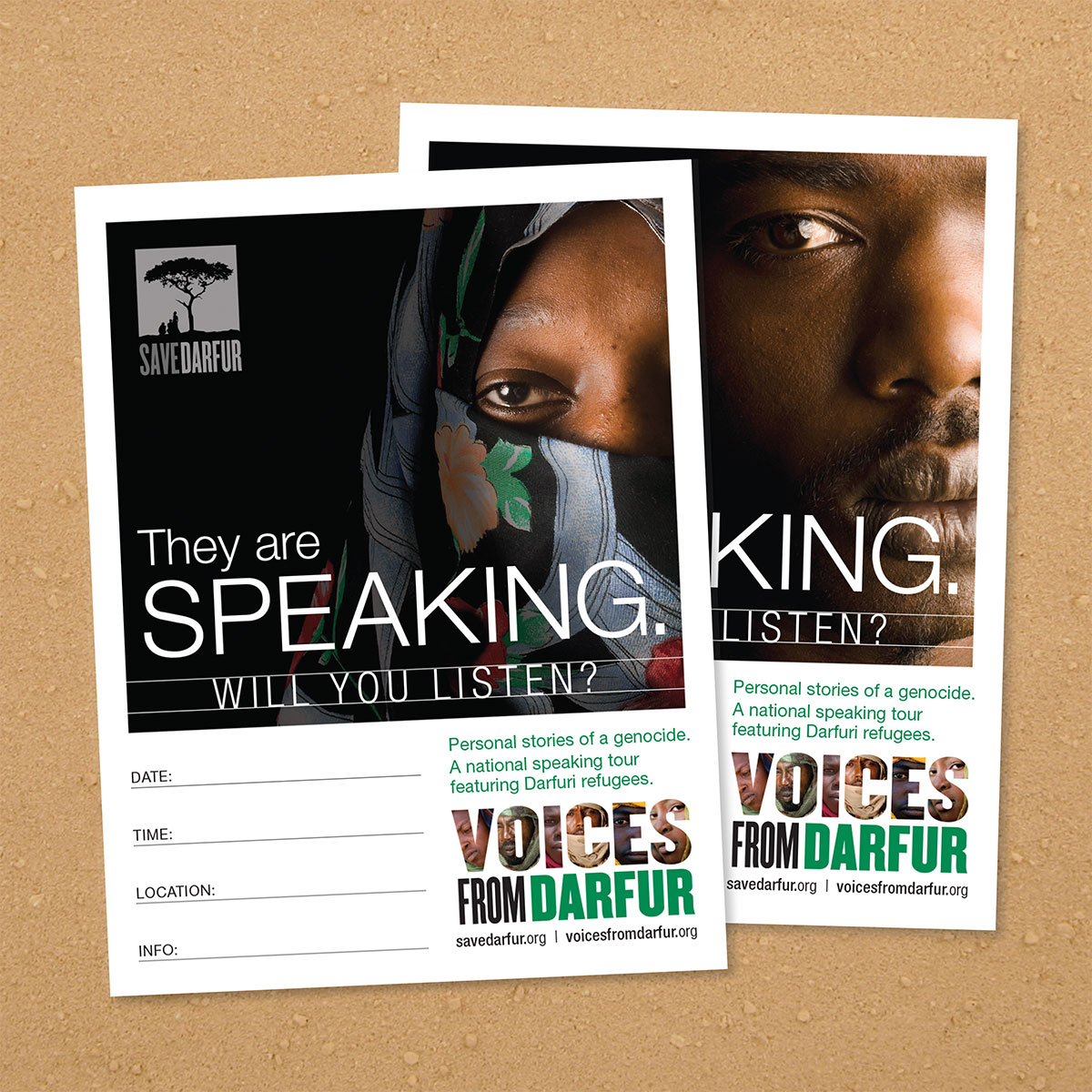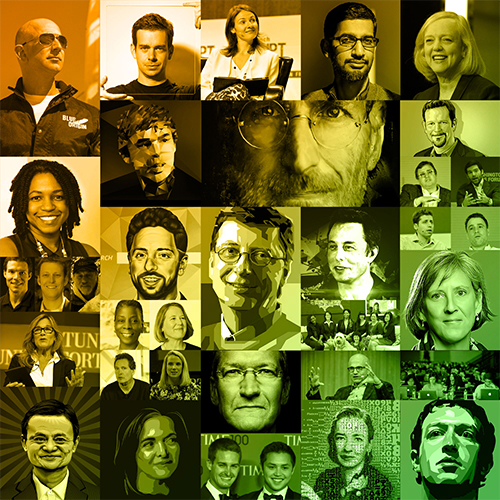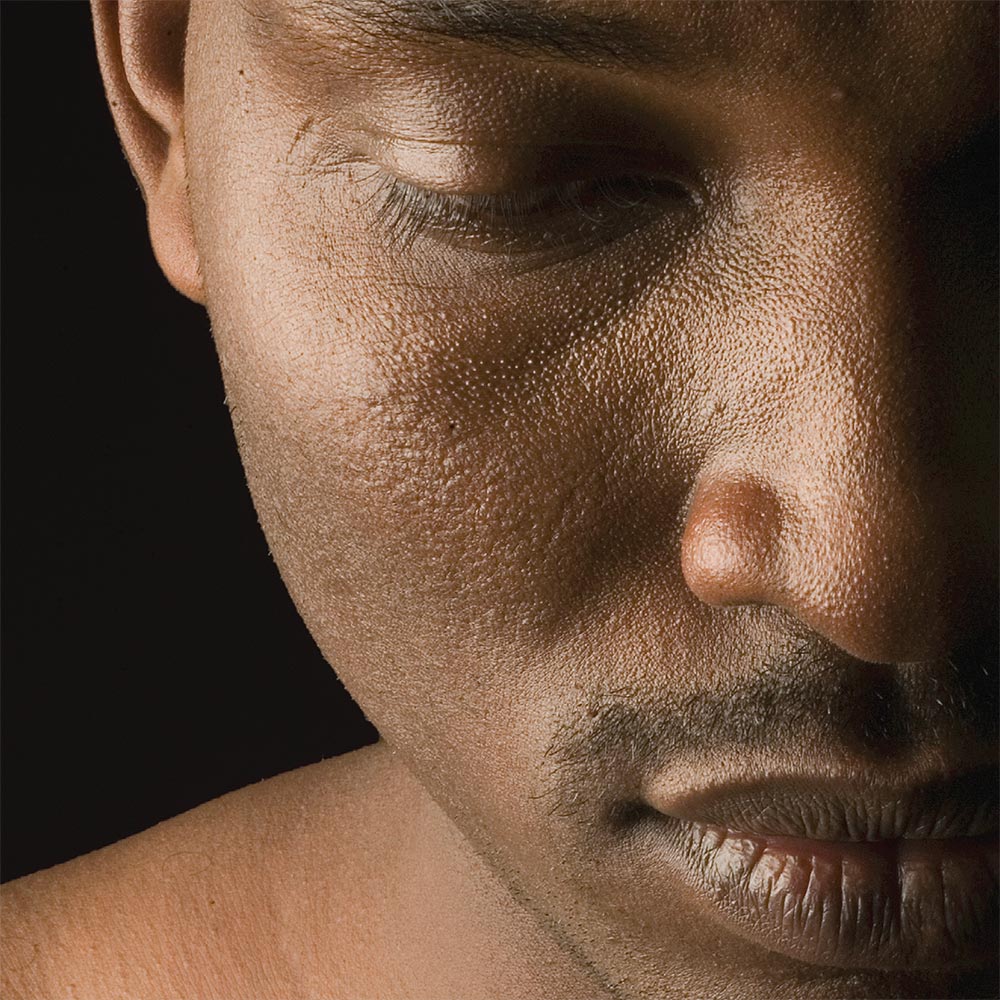SAVE DARFUR COALITION
GENOCIDE HAS NO STATUTE OF LIMITATIONS
BACKGROUND
When genocide erupted in Darfur, millions fell victim to a government-led campaign of rape, torture, and murder. After three years of sustained violence and global complacency, the Save Darfur Coalition took action and turned to GMMB.
THE WORK: SAVE DARFUR CAMPAIGN
The ask: mobilize a global response by telling a story that can’t be ignored about a people that can’t be ignored. Through TV, print, and outdoor advertising, GMMB delivered potent messages of the horrors of genocide and demanded immediate action. The campaign put pressure on international leaders, ignoring the killing and the governments and foreign companies helping fuel the genocide. Ads also connected everyday citizens to the atrocities in Darfur, amplifying pressure on Washington and boosting support for the Coalition’s efforts.
GMMB provided the full complement of work, including video production, graphic design, media buying, advertising, public relations, coalition building, and management.
MY ROLE
At GMMB, there is some overlap between design and advertising. The ad teams are responsible for ad creative, and the design teams are responsible for design and production. At any given time, the designers work on print collateral, advertising, event support, digital, or all of the above.
As Design Director/VP, I oversaw a team of ten designers, production artists, and project managers as we produced collateral materials for the campaign. My task was to ensure our designs communicated the campaign's intent and the messaging of the ad teams and adhered to the standards we had set with the coalition. Actual work included brainstorming, art direction, design oversight, and hands-on design.
VOICES from DARFUR
A short film that was used as part of a nationwide speaking tour featuring Darfuri refugees talking about their personal experiences with the tragedy in Darfur.
Produced by GMMB with a voice-over by Allison Janney
VOICES FROM DARFUR, A NATIONWIDE SPEAKING TOUR
Event Description:
Abu Asal Abu Asal is a published Arabic-language novelist from Western Darfur now living in Massachusetts. Before making his way to the United States, Abu Asal was arrested and beaten by the Sudanese government for protesting the mistreatment of Darfuris and was eventually forced to flee Sudan.
Ibrahim Adam is a native of Northern Darfur who is now living in Illinois. Adam lost 20 family members when his village was burned by the Janjaweed militia working with the Sudanese government, and he is waiting for safe conditions to return and rebuild Darfur.
Abu Asal, Adam, and other Darfuris living in the United States traveled the country to tell their stories on the Save Darfur Coalition’s Voices from Darfur tour. In its first year, Voices from Darfur visited 44 cities across the United States, from Albuquerque to Boston to Honolulu, reaching more than 10,000 people.
Voices from Darfur featured speakers and a short documentary film.
Attendees left the event empowered to take action to stop the genocide.
The Save Darfur Coalition raises public awareness about the ongoing genocide in Darfur. It mobilizes a unified response to the atrocities that threaten the lives of people throughout the Darfur region. It is an alliance of more than 180 faith-based, advocacy, and human rights organizations. The coalition’s member organizations represent 130 million people of all ages, races, religions and political affiliations united to help Darfur's people.
“While those committing the genocide represent the very worst of our society, these students selflessly represent the very best of our country, our society, and the Save Darfur movement.”
. . . . .
DOLLARS FOR DARFUR
Fundraising events happened on many levels and tiers, which meant we had to create low to no-budget marketing materials for students — that they could print independently.
With no marketing budget, students participating in Dollars for Darfur, which ran for six months, used social networking websites to recruit students from participating high schools.
Students from more than 2,000 U.S. high schools raised their voices and over $300,000 to urge an end to the ongoing genocide in Darfur as part of the national Dollars for Darfur competition sponsored by the Save Darfur Coalition. High school students used traditional and non-traditional fundraising methods to raise dollars that were used to increase advocacy efforts to stop the genocide and increase humanitarian aid for Darfuri refugees. Students and advisors from the top ten participating schools traveled to Washington to urge their lawmakers to do more to stop the killings in Darfur.
“Students from all across America expressed their passion, creativity, and humanity to increase awareness and raise money for critical advocacy and humanitarian programs,” said David Rubenstein, Save Darfur Coalition executive director.
STATION DOMINATION + TRANSIT ADVERTISING TAKE OVER
To exert financial pressure on the government of Sudan to change its policies and bring peace to its people, Save Darfur launched a divestment campaign, Divest for Darfur. It focused on using print and broadcast advertisements to target the “highest offending” companies that conducted business in Sudan, such as Fidelity Investments and Berkshire-Hathaway. Both companies heavily invested in PetroChina, whose revenue supported the Sudanese military and allowed them to continue committing crimes against humanity.
One of these efforts manifested as physical takeovers of key transit stations in San Francisco and Boston, known as station-dominations. The advertising helped raise awareness, coincided with planned protests outside offending institutions, and brought light to the situation.
This contributed to a more significant effort in which some organizations and countless individuals worked tirelessly to get companies divested and meaningful legislation passed.
The Bush administration implemented the final provision of a 2007 law, the Sudan Accountability and Divestment Act. The act authorizes states to divest from companies that helped fund the genocide, ban contracts with these enterprises, and prohibit such companies from receiving federal contracts.
Now any company helping to fund the genocide will no longer be able to work with the federal government. Activists made phone calls and wrote letters, and organizations came together to demand full and complete implementation. After months of intense advocacy, the administration issued the ruling in June 2008, and the contract ban went into effect.
AD CAMPAIGN
Renowned photographers donated their time, talent, and photography allowing us to illustrate the reality of the tragedy in Darfur. The unflinching print ads were given national and international exposure in high circulation publications such as Rolling Stone.
RESULTS
Ads by GMMB spanned the globe and reached millions. In 2004, only 14 percent of Americans knew about the year-old genocide. Just four months into our campaign, awareness levels reached 60 percent. Nearly two in three Americans believed taking action to stop genocide should be a high priority in the foreign policy of the United States. The campaign helped raise almost $4 million in Web donations. The nightmare continues in Darfur, but the world is no longer asleep. With the help of the campaign, public opinion was mobilized in a way that will hopefully bring lasting peace to Darfur. Updates on the peace process on Wikipedia.




















